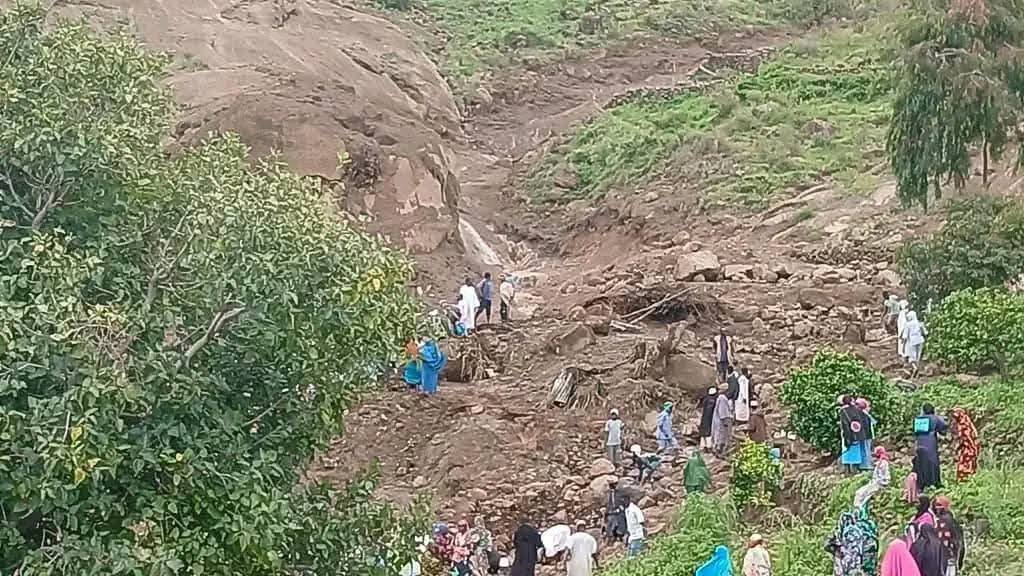
The UN is rushing aid to the remote Jebel Marra after a landslide on Sunday flattened much of the village of Tarseen, with the death toll uncertain and access severely constrained by rain and terrain.
Acting UN Resident and Humanitarian Coordinator in Sudan, Luca Renda, said rescue teams, tents, food, water and emergency kits are being deployed and that a clearer picture should emerge as access improves. UN deputy humanitarian coordinator Antoine Gérard put confirmed fatalities at at least 370, while cautioning that the scale is hard to verify.
The Sudan Liberation Movement/Army (SLM/A), which controls the area, said as many as 1,000 people may have died and appealed for urgent international assistance. Its leader, Abdel Wahid Mohamed al-Nur, told the BBC that thousands had moved to the “naturally protective” mountains during the war, swelling the village’s population. A local emergency team coordinating the search said nine bodies had been recovered so far, with operations hampered by continuous rain, treacherous slopes and scarce equipment.
Humanitarian officials say reaching the site is challenging in the rainy season, with no helicopters available and roads frequently cut by flooded valleys. The UN is mobilising nearby towns and a hospital to support survivors.
North Darfur’s governor, Minni Minawi, called the disaster a “humanitarian tragedy” and urged international organisations to intervene swiftly. The African Union Commission urged warring parties to facilitate unhindered emergency access.
The slide struck amid a war between General al-Burhan’s army (SAF) and the Rapid Support Forces that erupted in April 2023, driving millions from their homes. Estimates for conflict deaths vary widely; displacement is thought to exceed 12 million. Many families from North Darfur had sought refuge in the Marra Mountains before the disaster.
